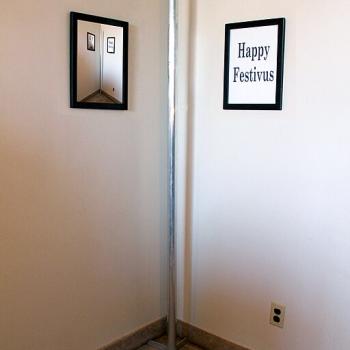Ben Carson stirred up the latest Republican primary tempest this weekend when he volunteered the opinion that he “would not advocate that we put a Muslim in charge of this nation.” What should we make of this statement?
First, it speaks to a pervasive religious ignorance in our political culture, of which Carson is hardly the only example. If we assume that the world’s billion or so Muslims are all the same – all of them jihadists and Sharia-imposers – then perhaps Carson would have a point. But even America’s Muslims are not uniform in their knowledge, views, and practice of Islam. They’re as diverse as so-called American “Christians,” who range from the liberalism of President Obama’s United Church of Christ, to Mike Huckabee’s Southern Baptist faith, to the millions who profess to be Christians – even “evangelicals” – but who never darken a church door.
Who is the typical American Muslim? Fort Hood murderer and jihadist Nidal Hasan? Or perhaps one of the 700,000 or so Iranian Shias who live in Los Angeles, many of whom originally came to America fleeing the fundamentalist Iranian Revolution in 1979? Many of these folks and their children are ethnically Muslim but functionally secular. They have no interest in practicing fundamentalist Sharia law, much less imposing it on others. Who counts as “a Muslim” in America? How about a new Pakistani immigrant in Houston? Or U.S. Representative Keith Ellison, Congress’s first elected Muslim? The point is that saying “a Muslim” should not become president makes no sense. There’s more than one kind of Muslim.

Carson’s statement also reminds us that the Constitution’s prohibition on religious tests means that real defenders of religious liberty would insist that no one’s faith should necessarily disqualify them from political office. We have make a careful distinction here, of course. The Constitution hardly bans Americans from taking a candidate’s faith, or lack thereof, into consideration when voting. Many on the left voted against George W. Bush in part because they found his evangelical faith disconcerting. Likewise, Ben Carson has the right to believe that, as a matter of his political preference, he would not want any Muslim to be president. Whatever we may think about this view, it does not violate the Constitution. But presidential aspirants should not single out any religious group for such marginalization – doing so does violate the spirit of the Constitution’s inclusive notion of religious liberty.
Finally, we should note that the framers of the “no religious test” clause specifically debated whether this meant that, one day, an atheist or a Muslim might be elected president. Opponents said that it would. Proponents, including many evangelical Baptists, admitted that one day, a Muslim or atheist might indeed become president. That’s what real religious liberty requires – adherents of any and all faiths should be able to participate fully in the life of the republic, and not suffer special disadvantages, because of their faith.
Does Islam have a particular problem with regard to jihadist violence and terrorism? Yes, of course it does. But real religious liberty requires that law-abiding adherents of all faiths have equal access, in principle, to the benefits and offices of the republic, including the presidency.
[Friends, you can sign up here for my Thomas S. Kidd author newsletter. Each newsletter will update you on what’s happening in my writing and the world of American religious and political history, and current events. It will contain unique material available only to subscribers, and each will help you keep up with my blog posts, books, and other writings from around the web. Your e-mail information will never be shared. Thanks!]












